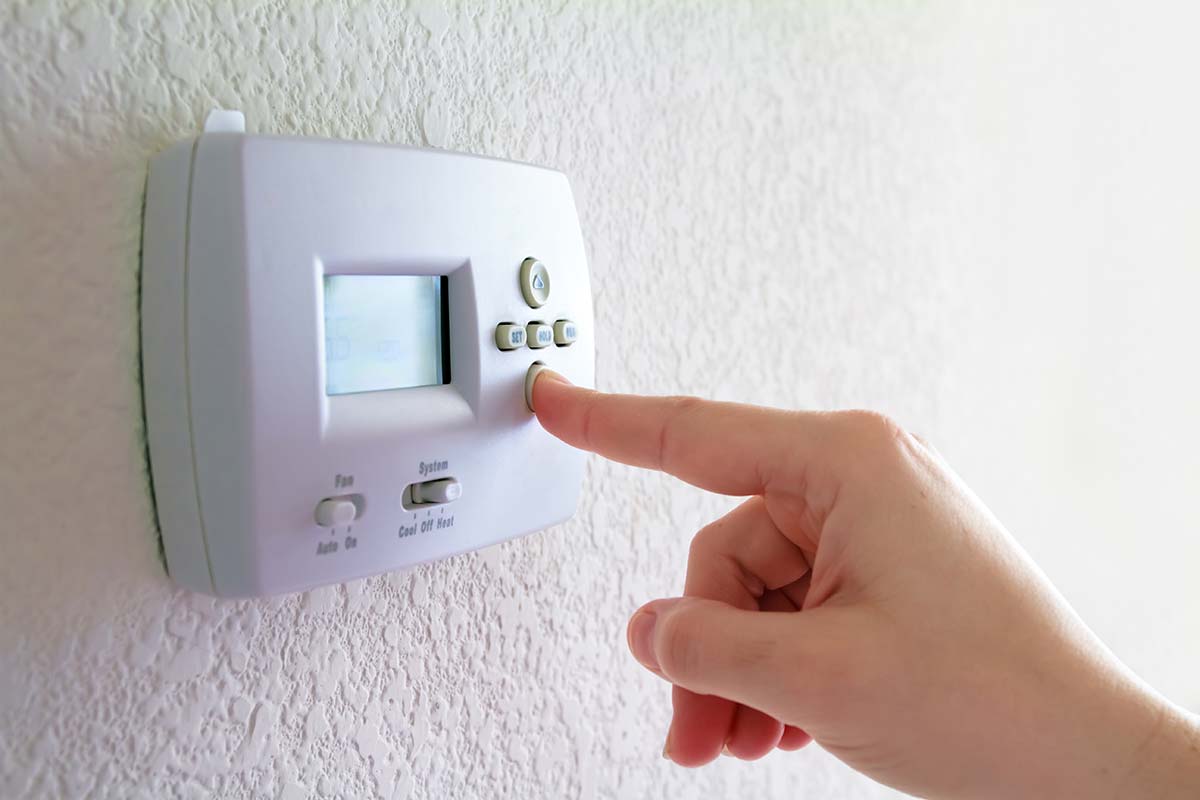
Give your thermostat a vacation.
Unless you have someone housesitting for you while you are away, you don’t need to keep the thermostat on while you’re on vacation. If you have a programmable thermostat, there may be a “vacation” setting you can select before you leave, but if you don’t, just turn off the thermostat until you return.
If you live in a cold climate and are worried about your appliances or pipes freezing, it’s recommended you keep your thermostat set to 50 degrees Fahrenheit while you’re away. This will still help you cut back on energy while ensuring you don’t come home to frozen pipes.
Unplug appliances.
Do a final walk through of the house before you leave and unplug any appliances that won’t need electricity while you’re on vacation. For example, TVs, DVD players, alarm clocks, and coffee makes will not used if you’re not home, so why leave them plugged in? Even if these devices are turned off, they can still consume energy as long as they’re plugged into an electrical outlet.
Turn off lights.
Some homeowners leave their lights on when they go on vacation to give the appearance that someone is home, but this is a substantial waste of energy. Turn all of your lights off before you go. If you want to scare off potential intruders, invest in lights with a timer so they automatically turn on when the sun goes down and then turn off during daylight hours. This will help you protect your house while also cutting down on energy use.
Adjust the refrigerator.
If you’re going to be gone for over a month, it’s recommended you completely empty your refrigerator and freezer and unplug it. However, if you’re only leaving for a few days, doing this would be a huge waste of food. Instead, adjust the temperature so you can save a little bit of energy until you return. Change the refrigerator temperature to 38 degrees Fahrenheit, and the freezer temperature to 5 degrees Fahrenheit. This is not enough of a change to spoil any of your food, but it is a big enough change to conserve energy while you’re on vacation.
Give your water heater a vacation.
Many homeowners believe if no one is home to use hot water, their water heater won’t consume any energy while they’re away, but this is not the case. A large portion of water heater costs is caused by “standby losses,” which occur even when no one is home to use the hot water. To reduce standby losses, give your water heater a vacation and turn it off before you leave. Don’t worry about coming home to a nice, hot shower—most water heaters can reheat water within an hour, so you won’t have to wait long once you return.
Add these items to your to-do list so you can enjoy your winter vacation without worrying about coming home to a huge energy bill!